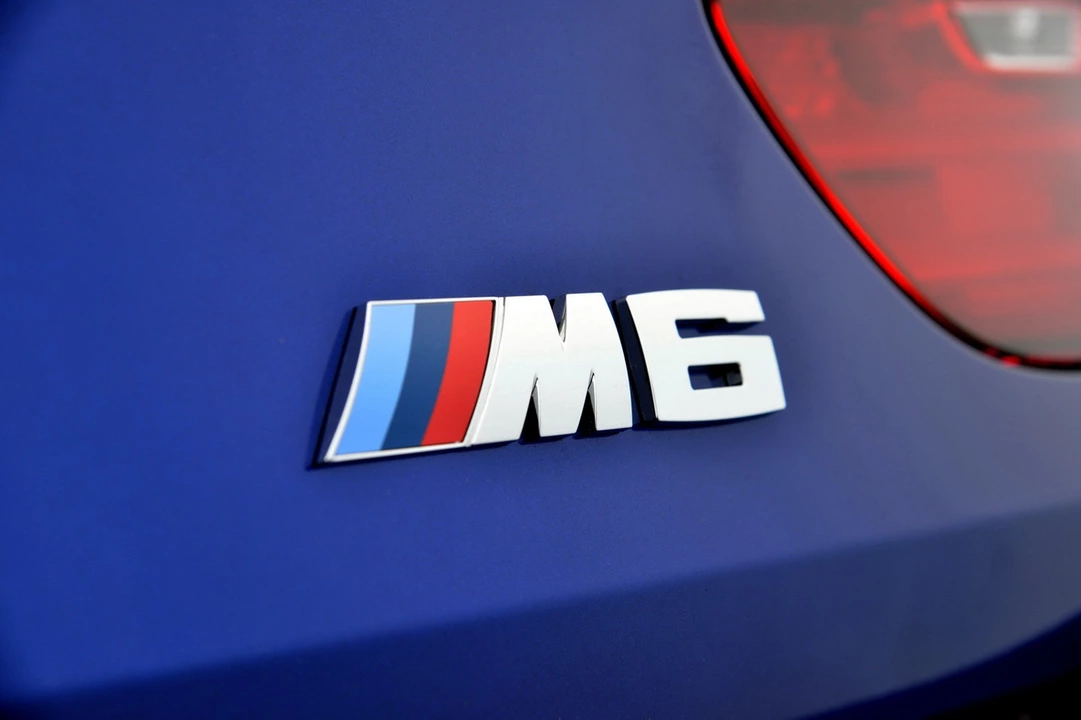
The Origins of the BMW M Division
Before we dive into the meaning of the M in BMW M5, it's essential to understand the origins of the BMW M Division. The M Division, or BMW Motorsport GmbH, was established in 1972 as a separate entity within BMW to focus on developing high-performance vehicles and components. Initially, its primary purpose was to support BMW's racing activities, but it eventually evolved into a division that creates some of the most sought-after performance vehicles on the market.
The first official BMW M car, the M1, debuted in 1978, setting the stage for a long line of iconic M-badged vehicles. These cars are known for their performance, style, and exclusivity, with many enthusiasts considering them the ultimate expression of BMW engineering.
What is the meaning of the letter M in BMW M5?
Now, let's get to the heart of the matter: what does the letter M stand for in BMW M5? In simple terms, the M in BMW M5 stands for "Motorsport." This designation signifies that the vehicle is part of the prestigious BMW M Division, which is responsible for creating high-performance versions of BMW's standard models.
The M5, in particular, is the high-performance variant of the BMW 5 Series. The first M5 was introduced in 1984, and since then, it has been a benchmark for performance sedans worldwide. The M5 is known for its powerful engine, agile handling, and luxurious amenities – a perfect blend of performance and comfort.
The Evolution of the BMW M5
Over the years, the BMW M5 has gone through several generations, each one improving upon its predecessor. The first-generation M5 (E28) was powered by a 3.5-liter inline-six engine, producing 282 horsepower. It was the fastest production sedan at the time, with a top speed of 152 mph.
Subsequent generations have continued to push the envelope in terms of performance and technology. The current M5 (F90) boasts a 4.4-liter V8 engine with 600 horsepower, rocketing the car from 0-60 mph in just 3.2 seconds. Additionally, the M5 now offers advanced features such as all-wheel drive and customizable driving modes, making it more versatile than ever before.
Why Choose a BMW M5?
One might wonder, why choose a BMW M5 over a standard 5 Series? The answer lies in the M5's unique blend of performance, luxury, and exclusivity. With its powerful engine, sport-tuned suspension, and aggressive exterior styling, the M5 offers a driving experience that is both exhilarating and refined.
Furthermore, the M5 is often equipped with exclusive features and options not found on the regular 5 Series, such as specialized M Sport seats, unique interior trim, and advanced performance technologies. This combination of performance and luxury makes the M5 an attractive choice for those seeking the ultimate driving machine.
Notable BMW M5 Models
Throughout its history, there have been several notable BMW M5 models that have captured the attention of enthusiasts and collectors alike. Some of these iconic M5 models include:
- The E34 M5, which introduced the first V8-powered M5 and featured a unique "Nürburgring" package for enhanced track performance.
- The E39 M5, often regarded as one of the best M5 models ever produced, with its timeless design and naturally aspirated V8 engine.
- The E60 M5, the first and only M5 to feature a V10 engine, producing a staggering 500 horsepower.
- The F10 M5, which debuted the M5's first turbocharged engine and introduced advanced performance technologies such as Active M Differential and M-specific suspension.
BMW M5 Competitors
As the benchmark for performance sedans, the BMW M5 has inspired a number of competitors throughout the years. Some of the most notable rivals include the Mercedes-AMG E63, Audi RS6, and Porsche Panamera Turbo. Each of these vehicles offers a unique take on the high-performance sedan formula, making the segment more exciting and diverse than ever before.
Despite the fierce competition, the BMW M5 remains a favorite among enthusiasts for its blend of performance, style, and luxury. It continues to set the standard for what a performance sedan should be, and its Motorsport heritage ensures that it will always be an icon in the automotive world.
Future of the BMW M5
As we look towards the future, it's clear that the BMW M5 will continue to evolve and adapt to the changing automotive landscape. With the rise of electrification and autonomous driving technologies, the M5 will likely incorporate these advancements while still staying true to its Motorsport roots.
One thing is for sure: the BMW M5 will always be a symbol of performance, luxury, and exclusivity. As long as there are passionate drivers seeking the ultimate driving machine, the M5 will continue to stand as a testament to BMW's Motorsport heritage.
Conclusion
In conclusion, the letter M in BMW M5 stands for Motorsport, signifying the car's high-performance pedigree and connection to the prestigious BMW M Division. The M5 has a storied history of pushing the boundaries of performance and luxury, making it a sought-after vehicle for enthusiasts and collectors alike. As the automotive world evolves, the M5 will continue to be a symbol of BMW's commitment to delivering the ultimate driving experience.
More Articles

Best Rural Pub: The Plough in Wigglesworth leads Julian Smith’s Local Pub Awards 2025
The Plough in Wigglesworth has been named Best Rural Pub in Julian Smith MP’s Local Pub Awards 2025 after public nominations and voting. The Black Swan in Ripon took Best Pub overall, with other winners including the Woolly Sheep Inn in Skipton and Sera from The Albion, Skipton. The awards spotlight local pubs as community hubs and employers across Skipton and Ripon.

Aldermore Urges 18-Month Stamp Duty Holiday for New Homes Under £500,000 Ahead of Autumn Budget 2025
Aldermore Bank PLC urges an 18-month stamp duty holiday on new homes under £500,000 and reinstatement of Help to Build ahead of the Autumn Budget 2025, citing survey data showing 69% of first-time buyers support the move.

Did Ken Miles lose Le Mans?
Ken Miles was a race car driver who tragically died in 1966 while testing a Ford J Car at the Riverside International Raceway. In the 2019 film Ford v Ferrari, his story was told and his attempt to win the 24 Hours of Le Mans race in 1966 was featured. In the film, it appears that he was denied victory due to a technicality and his dream of winning was not realised. However, the true story is slightly different and while Miles was not officially declared the winner, he and his co-driver Denny Hulme did receive the checkered flag first. Unfortunately, due to a misunderstanding, the race was declared a tie and neither driver was awarded the victory. Thus, Ken Miles lost the race, but not due to any fault of his own.
